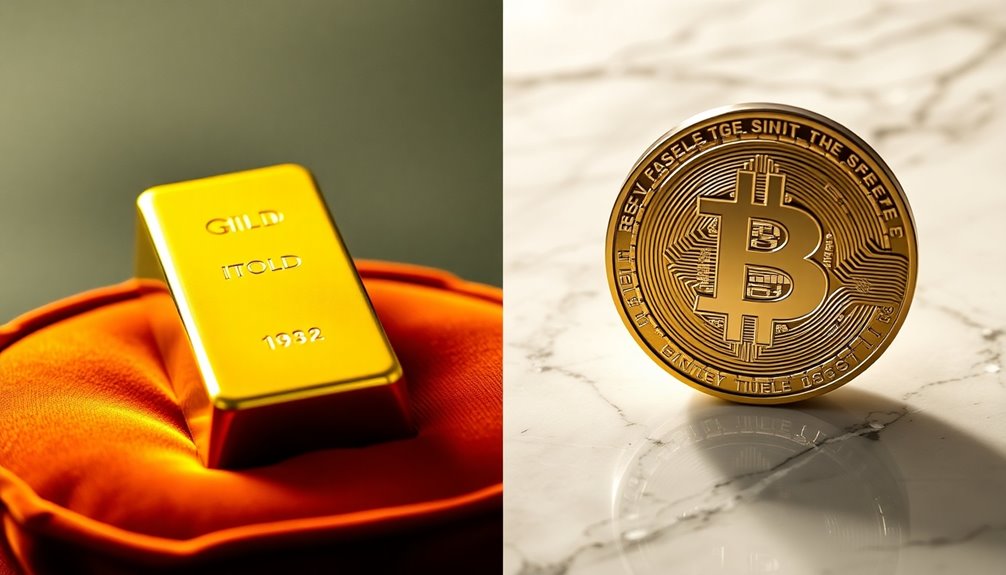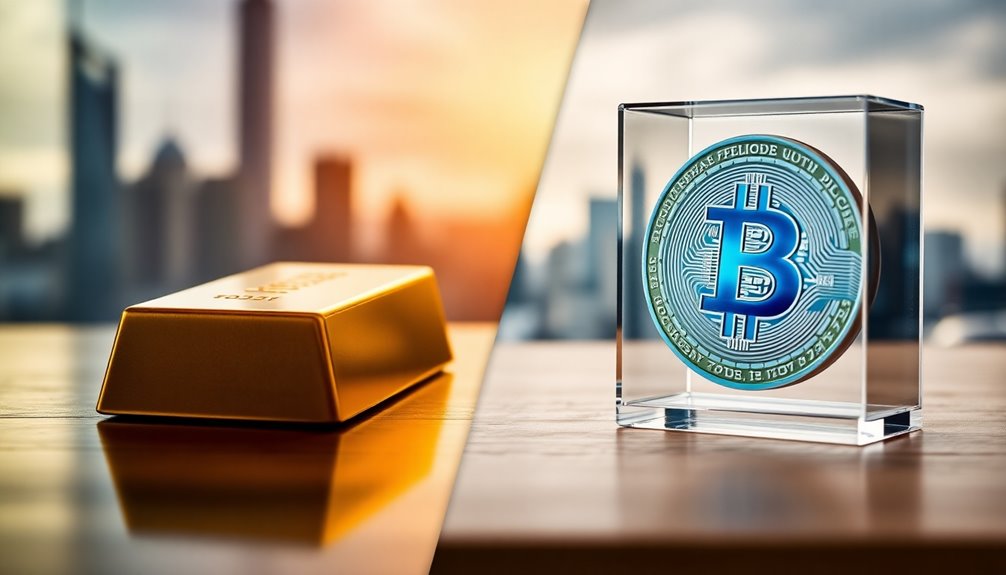As you consider your investment strategy for 2025, the debate between Bitcoin and gold becomes increasingly relevant. Both assets offer unique benefits and challenges that cater to different risk appetites. Gold's long-standing reputation as a safe haven contrasts sharply with Bitcoin's potential for rapid gains and innovation. With regulatory changes and environmental concerns in the mix, your decision could shape your financial future in unexpected ways. What factors will ultimately sway your choice?

When it comes to choosing a safe haven asset, how do Bitcoin and gold stack up against each other? Both have their strengths and weaknesses, but they represent two very different approaches to value preservation. Gold has served as a reliable store of value for centuries, deeply embedded in financial systems since ancient times. Its long history provides a sense of stability that many conservative investors appreciate. Moreover, gold's long-standing reputation for retaining value during economic downturns reinforces its position as a trusted asset.
On the other hand, Bitcoin, emerging in 2009, offers a modern digital alternative that's gained traction rapidly, attracting those who seek potential high returns. Furthermore, Bitcoin's unique features, such as diversification options within a Bitcoin IRA, can provide investors with additional strategies to manage risk.
One key difference lies in volatility. Bitcoin is notoriously volatile, with significant price swings that can scare off risk-averse investors. While Bitcoin has outperformed gold over the past decade in terms of returns, that comes with a higher risk. Gold, in contrast, maintains a more stable performance, often rising during economic uncertainty, making it a safer bet for those looking to preserve wealth.
When financial stress hits, you'll notice Bitcoin's price can plummet, while gold typically holds its ground.
The technological advancements of Bitcoin contribute to its appeal. As a digital asset, it offers portability, divisibility, and a level of transparency that gold can't match. Plus, Bitcoin's energy consumption is becoming more efficient, with a significant portion of its power sourced from renewables.
In contrast, gold mining has a hefty environmental impact, which is increasingly becoming a concern for many investors. Nevertheless, gold's physical nature allows you to hold it without needing any technological infrastructure, providing tangible security that Bitcoin lacks.
Regulatory aspects also play a vital role in this debate. Gold operates in a well-established regulatory environment, lending it credibility with governments and financial institutions. Bitcoin, while gaining institutional acceptance, still navigates a developing regulatory landscape.
As the ecosystem around Bitcoin evolves, it might either complement or challenge gold's position as a store of value.
Ultimately, your choice between Bitcoin and gold as a safe haven asset depends on your risk tolerance and investment goals. While gold offers stability and a long-standing reputation, Bitcoin presents the allure of high returns and innovative technology.
As you weigh these options, consider how each asset aligns with your financial strategy and market outlook for the years to come.









